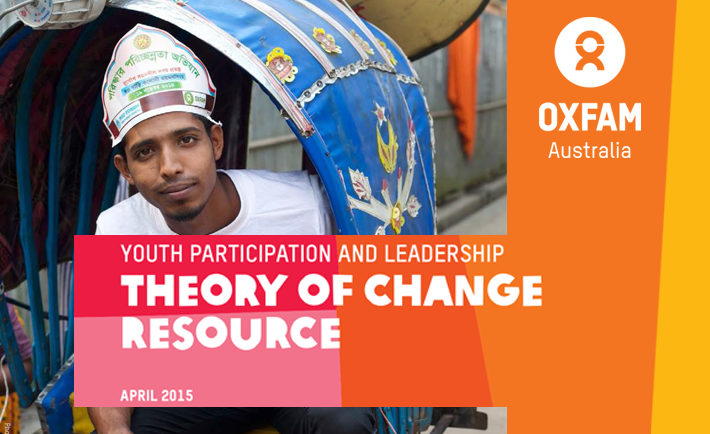Each week, NDI’s Citizen Participation team sends materials to staff around the world that offer practical tools and guiding concepts to consider in their programming. In a rapidly changing world, new ideas and strategies are constantly being developed by practitioners, funders and other organizations. By sharing a digest of our “Citizen Participation Weekly Resource,” we hope to highlight the most innovative and effective knowledge-based approaches to making democracy work.
Here are four quality resources for citizen participation from the last month:
 What is political voice, why does it matter, and how can it bring about change?, published by the Overseas Development Institute (ODI), explores the importance of political voice as a tool for change. By increasing demands for accountability, political voice can influence government priorities and encourage consensus building on key issues. In a compilation of blog entries from leading thinkers in the field of democracy assistance, this publication identifies the methods citizens most commonly use to channel their demands. This paper argues, however, that if political voice is to be meaningful, elected officials must have the capacity and will to respond to people’s demands.
What is political voice, why does it matter, and how can it bring about change?, published by the Overseas Development Institute (ODI), explores the importance of political voice as a tool for change. By increasing demands for accountability, political voice can influence government priorities and encourage consensus building on key issues. In a compilation of blog entries from leading thinkers in the field of democracy assistance, this publication identifies the methods citizens most commonly use to channel their demands. This paper argues, however, that if political voice is to be meaningful, elected officials must have the capacity and will to respond to people’s demands.
 Youth & Consequences: Unemployment, Injustice and Violence, published by Mercy Corps, challenges assumptions about youth and violence. According to the publication, poverty and unemployment alone do not cause political violence; rather it is triggered by experiences of injustice including discrimination, corruption and abuse by security forces. This report further identifies weaknesses in the design and implementation of various programs that work with youth, in particular the use of inappropriate indicators of success and a lack of adaptability to local challenges.
Youth & Consequences: Unemployment, Injustice and Violence, published by Mercy Corps, challenges assumptions about youth and violence. According to the publication, poverty and unemployment alone do not cause political violence; rather it is triggered by experiences of injustice including discrimination, corruption and abuse by security forces. This report further identifies weaknesses in the design and implementation of various programs that work with youth, in particular the use of inappropriate indicators of success and a lack of adaptability to local challenges.
 Towards New Social Contracts: Using Dialogue Processes to Promote Social Change by CIVICUS: World Alliance for Citizen Participation discusses the benefits and limitations of initiating multi-stakeholder, cross-sectional dialogue when promoting socio-political change. Multi-stakeholder dialogue is seen as a way to create collaborative and sustainable relationships across sectors (government, civic society, business) and to move beyond a sectors-based approach to problem solving. Seven pilot dialogues from Albania, Bolivia, Canada, Madagascar, Sri Lanka, Timor-Leste and Venezuela are used as examples to illuminate successful strategies.
Towards New Social Contracts: Using Dialogue Processes to Promote Social Change by CIVICUS: World Alliance for Citizen Participation discusses the benefits and limitations of initiating multi-stakeholder, cross-sectional dialogue when promoting socio-political change. Multi-stakeholder dialogue is seen as a way to create collaborative and sustainable relationships across sectors (government, civic society, business) and to move beyond a sectors-based approach to problem solving. Seven pilot dialogues from Albania, Bolivia, Canada, Madagascar, Sri Lanka, Timor-Leste and Venezuela are used as examples to illuminate successful strategies.
 Youth Participation and Leadership: Theory of Change Resource by Oxfam Australia emphasizes that youth participation is important not only to ensure the inclusion of all citizen voices, but also because young people often hold the greatest potential for challenging exclusive societal norms (for example, restrictive gender roles). The resource concisely outlines three pathways to successful youth inclusion that can foster more effective and sustainable youth engagement.
Youth Participation and Leadership: Theory of Change Resource by Oxfam Australia emphasizes that youth participation is important not only to ensure the inclusion of all citizen voices, but also because young people often hold the greatest potential for challenging exclusive societal norms (for example, restrictive gender roles). The resource concisely outlines three pathways to successful youth inclusion that can foster more effective and sustainable youth engagement.

